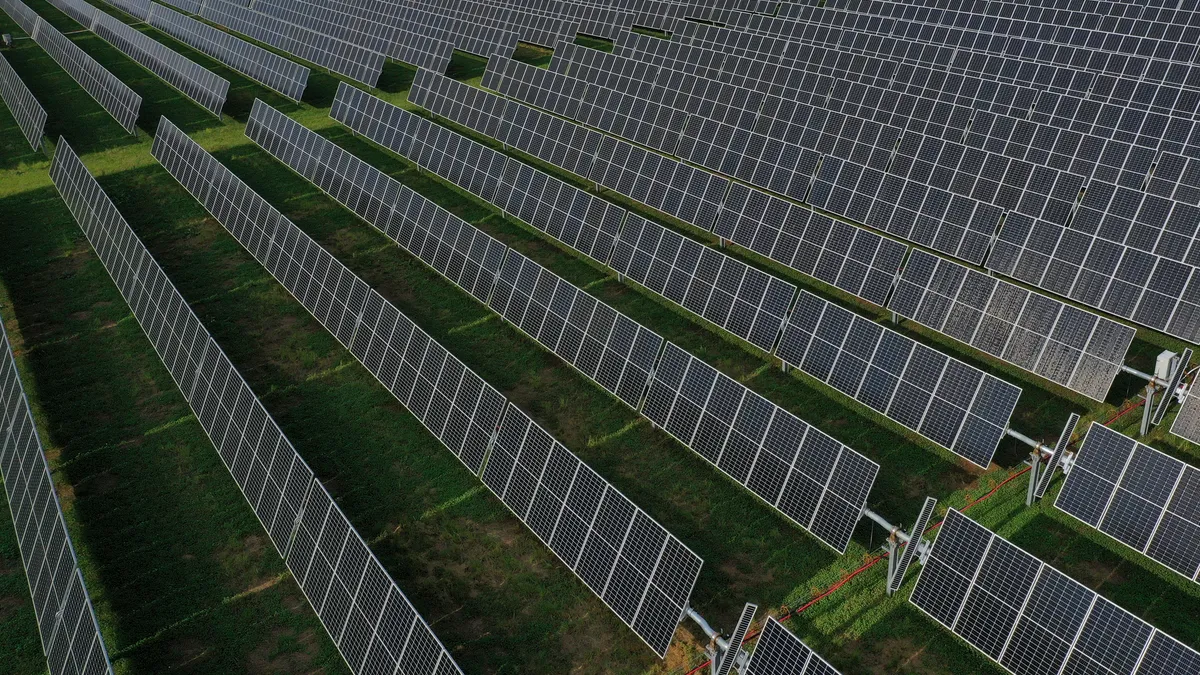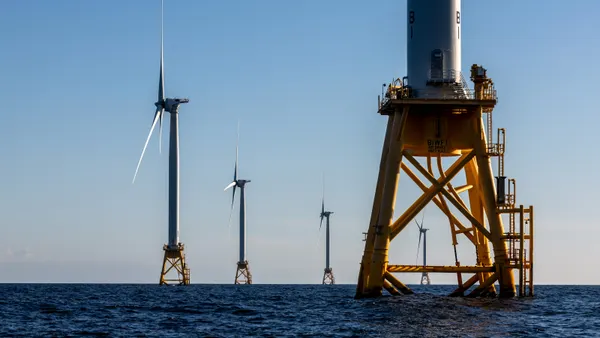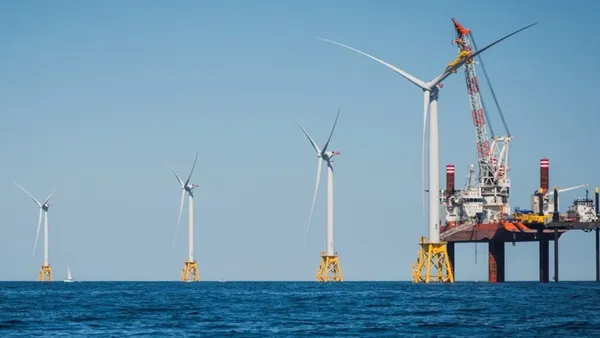Dive Brief:
- Corporate buyers engaging in clean energy procurement provide a degree of financial stability that derisks renewable energy projects and helps them get built, the Clean Energy Buyers Association said in a report released Tuesday.
- CEBA argues that corporate buyers provide stability by making offtake deals like virtual power purchase agreements, which means that renewable energy projects are less impacted by periods of low wholesale power prices.
- During those price dips, the report said, “projects may not earn enough merchant revenue to meet their debt service obligations or their investors’ rates of return, which, absent additional revenue sources, could lead to financial distress and potential default.”
Dive Insight:
“It is for this very reason that offtake agreements make it significantly easier for projects to get financed and built; debt interest rates and required debt service coverage ratios are typically lower for projects with offtake, and the vast majority of projects built recently had some form of offtake agreement in place,” the report said.
Corporate buyers signed deals for more than 100 GW of clean energy between 2014 and 2024, CEBA said, accounting for “41% of all clean energy capacity added to the U.S. grid in the last decade.”
CEBA represents more than 400 energy customer companies, energy providers, and nongovernmental organizations – with members including hyperscalers like Amazon, Microsoft, Google, Meta and Oracle. In the report, the group objected to “recent studies and articles” that questioned the contributions of corporate energy procurement to the clean energy transition.
The report links to two 2024 studies, one published in Joule and one in the Journal of Cleaner Production, each of which examined the validity of the various accounting systems corporations use to calculate their reported emissions.
“Although a claim of carbon-free electricity use implies to the public that an organization’s electricity consumption and procurement practices have a near-zero aggregate impact on climate change, this may not be the case,” the Joule study said. “In fact, multiple proposed emission accounting systems offer different definitions of being ‘carbon-free’.”
The Joule study examined three different accounting approaches and said that while each might allow a company to claim certain emission impacts, “they do not necessarily reflect how these participants’ actions actually change emission outcomes at the level of the entire electricity system.”
“This ‘consequential’ impact of a participant’s actions on emissions … cannot be directly measured in the real world because doing so would require observation of counterfactual realities in which the actions in question did not take place,” it said.
David Rogers, deputy director of the Sierra Club’s Beyond Coal campaign, said the Sierra Club agrees that corporate support for clean energy projects plays a key role in advancing clean energy, but added, “It is important to note that not all types of clean energy investment are equal. As the report notes, there are significant distinctions between a company signing a Power Purchase Agreement for a specific project or set of projects, versus one purchasing unbundled [renewable energy certificates].”
“I'd also note that even the PPA model doesn't ensure that a buyer is truly meeting its demand with clean energy,” Rogers said. “Typically PPAs allow a company to match their annual demand, rather than meeting that demand locally with 24/7 clean power. We're increasingly seeing utilities across the country propose to build new gas plants (and delay coal retirements) to serve the needs of these customers. So, it's imperative that corporate customers serious about meeting their clean energy and sustainability goals start pushing to meet their demand by procuring clean capacity that allows them to meet their needs for all hours of the day.”
CEBA’s report makes the argument that “the primary role of corporate offtake agreements [is] to mitigate the financial risk associated with earning revenue from the variable wholesale electricity market.”
“In contrast to fossil fuel generators, wind and solar projects have low operating costs but relatively high capital expenditures that are financed through a combination of sponsor equity, tax equity, and back leverage debt,” CEBA said. “Once a project becomes operational, it must repay these upfront costs through term loans and dividends to investors.”
The group said it assessed the impact of corporate procurement through VPPAs and renewable energy certificates by 251 wind and solar projects currently operating in ERCOT, MISO and PJM – markets the group selected “due to their heavy concentration of corporate procurement,” the report said.
CEBA said it simulated the financial health of each project over the last ten years and identified periods of financial distress, then compared the rates of financial distress in “purely merchant scenarios” to ones where corporate offtake played a role.
“Even with a relatively low REC value of $2.74, REC offtake agreements reduce the amount of projects that would face financial distress from 38% to 18% in ERCOT (a 52% reduction), with reductions of 23% and 17% in MISO and PJM, respectively,” the report said. “VPPA agreements have an even greater impact on reducing the frequency of financial distress due to their hedging behavior.”















